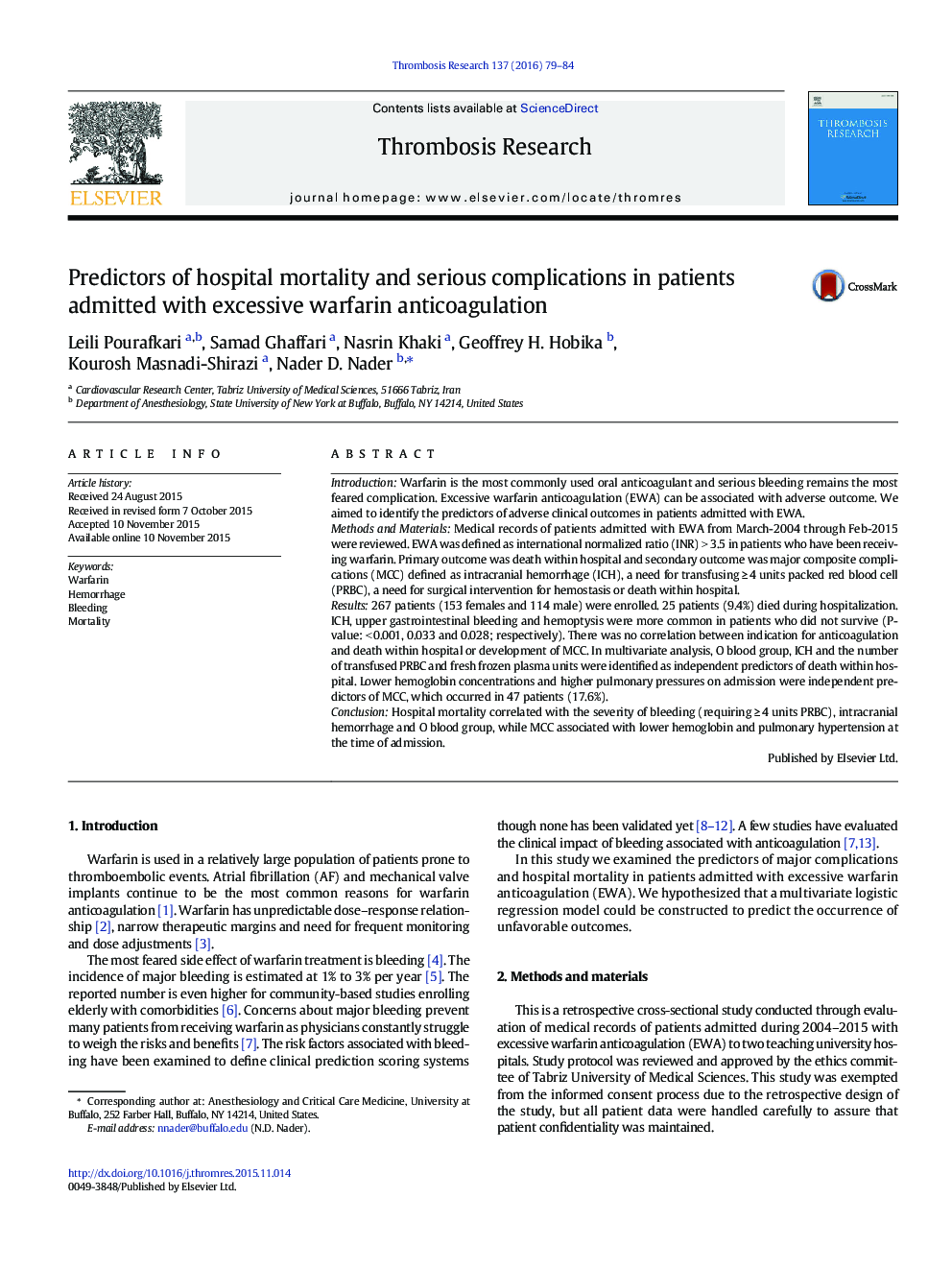| کد مقاله | کد نشریه | سال انتشار | مقاله انگلیسی | نسخه تمام متن |
|---|---|---|---|---|
| 6000922 | 1579206 | 2016 | 6 صفحه PDF | دانلود رایگان |
- Patients admitted with excessive warfarin anticoagulation have 9.4% mortality rate.
- Intracranial hemorrhage and upper gastrointestinal bleeding are more common in non-survivors.
- Concurrent use of aspirin is not associated with increased mortality in these patients
IntroductionWarfarin is the most commonly used oral anticoagulant and serious bleeding remains the most feared complication. Excessive warfarin anticoagulation (EWA) can be associated with adverse outcome. We aimed to identify the predictors of adverse clinical outcomes in patients admitted with EWA.Methods and MaterialsMedical records of patients admitted with EWA from March-2004 through Feb-2015 were reviewed. EWA was defined as international normalized ratio (INR) > 3.5 in patients who have been receiving warfarin. Primary outcome was death within hospital and secondary outcome was major composite complications (MCC) defined as intracranial hemorrhage (ICH), a need for transfusing â¥Â 4 units packed red blood cell (PRBC), a need for surgical intervention for hemostasis or death within hospital.Results267 patients (153 females and 114 male) were enrolled. 25 patients (9.4%) died during hospitalization. ICH, upper gastrointestinal bleeding and hemoptysis were more common in patients who did not survive (P-value: < 0.001, 0.033 and 0.028; respectively). There was no correlation between indication for anticoagulation and death within hospital or development of MCC. In multivariate analysis, O blood group, ICH and the number of transfused PRBC and fresh frozen plasma units were identified as independent predictors of death within hospital. Lower hemoglobin concentrations and higher pulmonary pressures on admission were independent predictors of MCC, which occurred in 47 patients (17.6%).ConclusionHospital mortality correlated with the severity of bleeding (requiring â¥Â 4 units PRBC), intracranial hemorrhage and O blood group, while MCC associated with lower hemoglobin and pulmonary hypertension at the time of admission.
Journal: Thrombosis Research - Volume 137, January 2016, Pages 79-84
